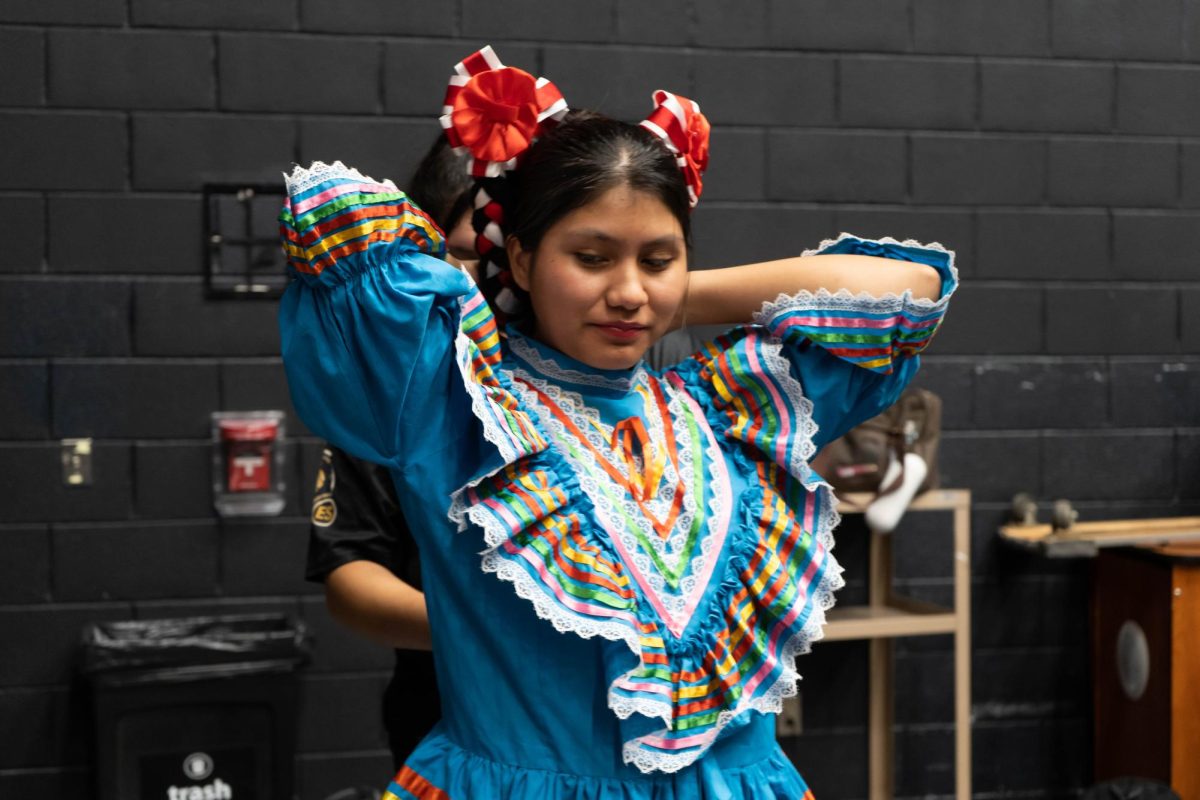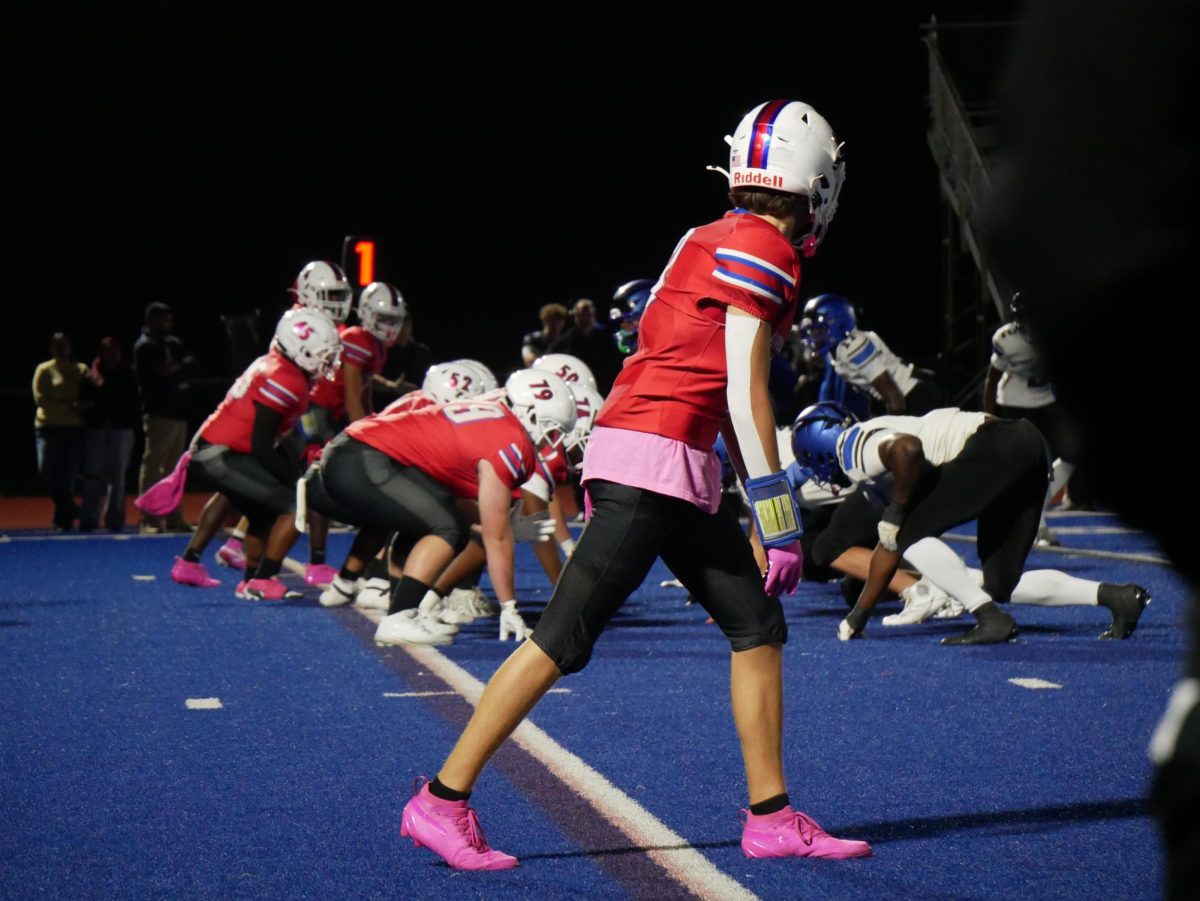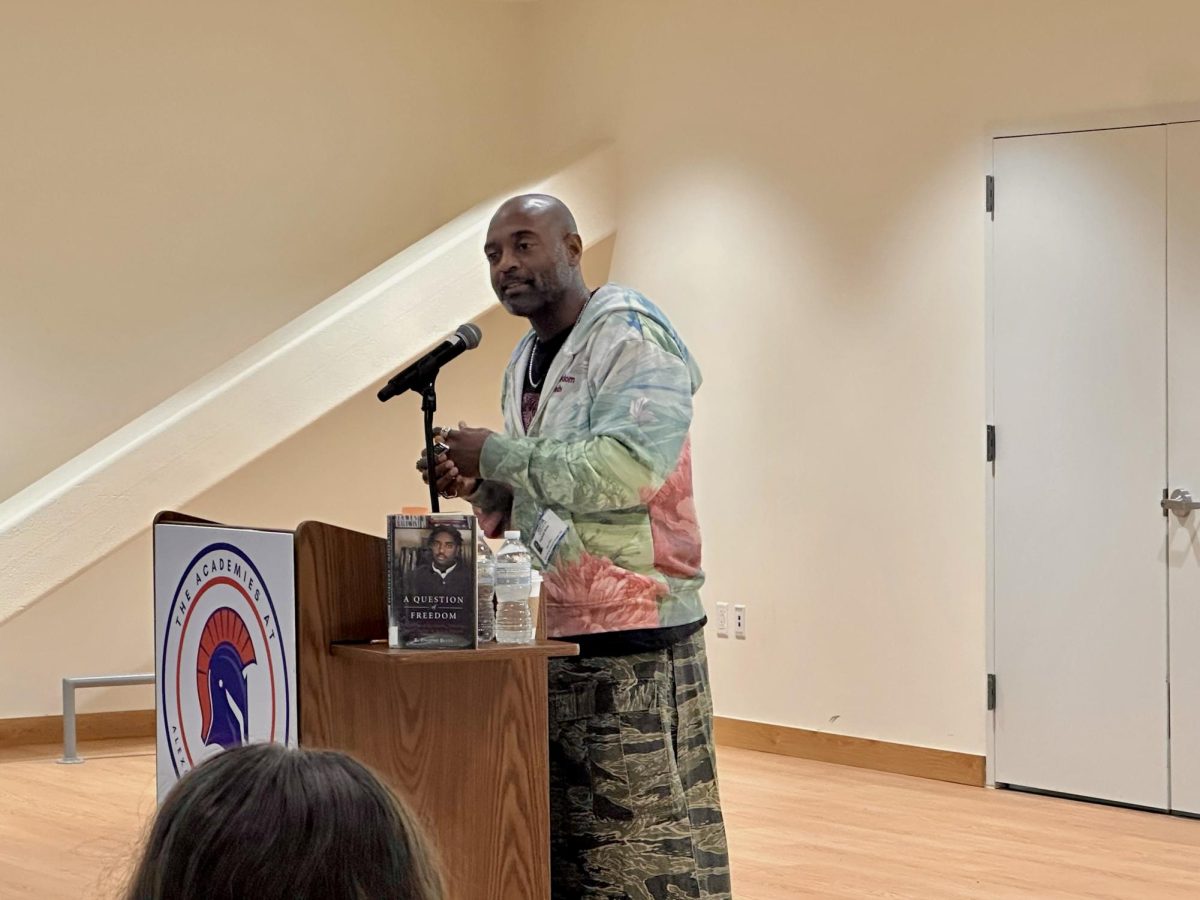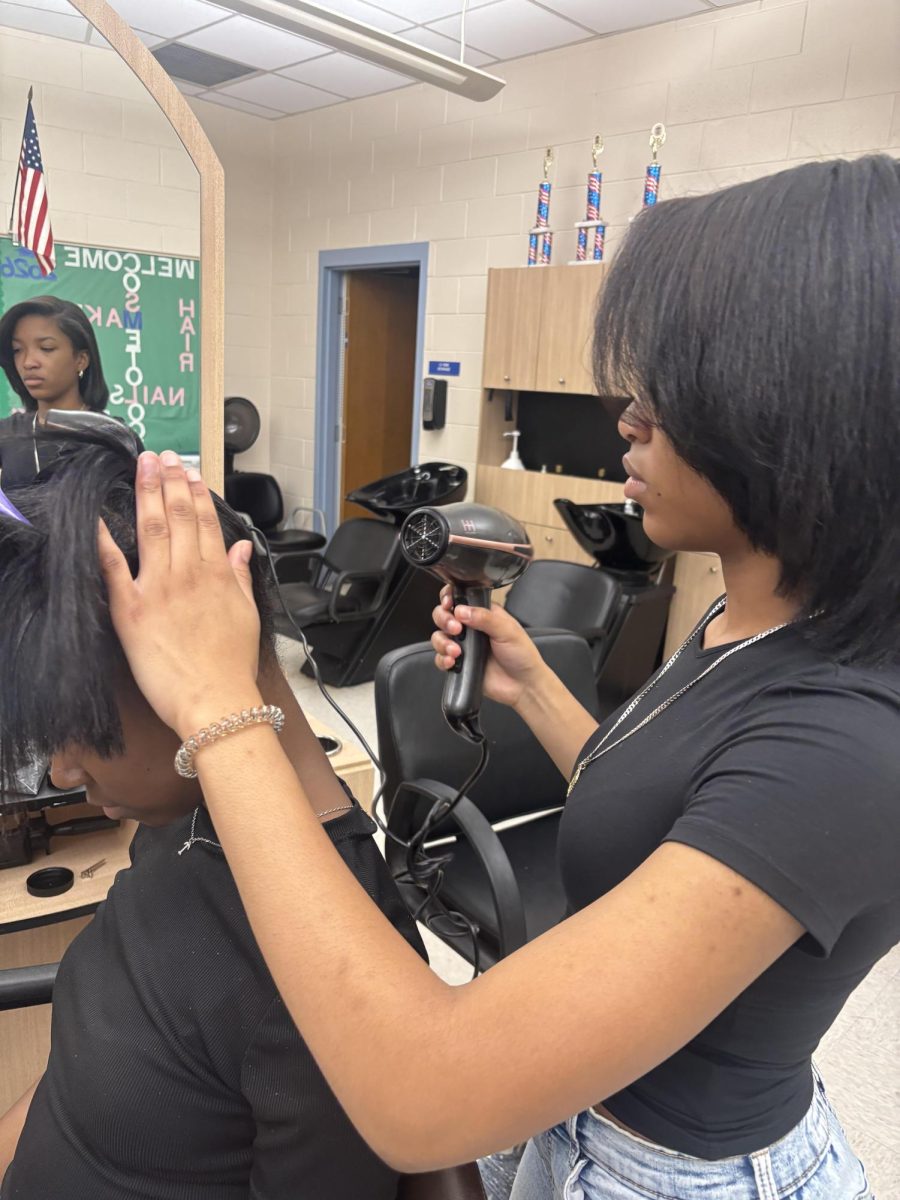Female Afghan students at Alexandria City High School continue to remain confident about their futures despite Taliban policies that are rapidly eliminating Afghan human rights, especially for women and girls.
Since the withdrawal of American troops from Afghanistan in August of 2021, the Taliban has been working toward a complete enforcement of its version of Sharia Law, Islam’s orthodox legal system, which has greatly limited Afghans’ freedoms. The most recent of these changes was enacted in a large ‘Vice and Virtue’ manifesto over the summer of this year, which, among other human rights violations, prohibits women from speaking in public. The United Nations and the vast majority of sovereign nations do not recognize the Taliban as the legitimate authority in Afghanistan.
Perhaps the most devastating impact the Taliban has left on young Afghans has been the crackdown on education. In September of 2021, only days after the United States military withdrew from the country, the Taliban banned girls from attending secondary school and later banned their access to universities as well.
Bibi Burhani is a senior from Afghanistan in the ACHS International Academy, and is an activist for women’s rights. After asylum stops in several other countries, she immigrated to the U.S. in December of 2022. Following the American departure in 2021 and the subsequent Taliban crackdown, Burhani says she “was hopeless, … and by hopeless I mean that a generation of Afghan girls cannot attend school.”
The Taliban’s Minister of its Vice and Virtue department, a program specializing in policy to restrict social, gender-based freedoms, Mohammad Khalid Hanafi, claims the group bases its principles on Islam. Burhani, however, points out that preventing girls from getting an education may contradict those principles.
“Education is a right that Islam and our holy book [the] Quran gives to all … human beings, no matter of their gender,” Burhani said.
These actions, Burhani adds, will have long-lasting effects on the people and the country, and keep the population in the dark regarding their government, “so they can keep the power for themselves.”
The Taliban has not only banned Afghan girls from attending secondary school and universities, but it is also making it increasingly difficult for girls to attend primary school, from first to sixth grade.
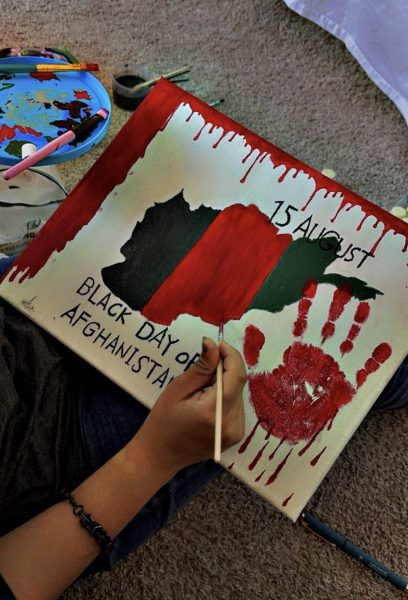
Sana Kawoon, another Afghan senior in the International Academy, says that the Taliban has even made it difficult for teachers to earn a living.
“They cut [teacher’s] salaries,” she said.
With the increasing, nearly complete suppression of education for girls, the future for women in Afghanistan continues to become more distressing.
“If the Taliban [doesn’t] open the doors in their minds and doors for education, then in the next 10 years, there won’t be a girl that is educated or [has] graduated from university or even school,” Burhani said.
The attacks on education started even before the Taliban takeover in 2021. Resisting U.S. occupation and attempting to increase their influence primarily through fear, the Taliban attacked hundreds of schools.
“There would be…bomb blasts every day. We had that fear of…maybe our school is next,” said Kawoon.
Despite these consistent attacks, many were still determined to go to school, struggling with the fact that “they didn’t know [if they would] come [home] alive.”
While external threats limited access to education under U.S. occupation, the state of education inside the classroom was still not ideal. Afghan cultural traditions separated boys and girls in classes after third grade, according to Kawoon. There was no cafeteria, forcing students to bring their own lunches from home, and, even then, there was no designated lunch break — they would have to take time out of their 45 minute classes to eat, but only if the teacher permitted them to. With no electronics, they performed all their classwork with pencils, pens, and paper. According to Burhani, “all the students would stay in the classroom, [and] the teacher [would] only walk in and walk out.”
Kawoon says that this is the primary reason that her family, including her sister Suraya, another senior in the International Academy, decided to immigrate to the U.S. They say they fully expected the Taliban’s restriction of education, referencing its rule of Afghanistan in the late 1990s. Kawoon said that, in stark contrast to the Taliban’s near abolition of female education, “Here, in the United States, leaders, people, everyone is supporting students to get educated….The school has so many resources that made us feel like this is the right place for us to be.”
Having experienced the Taliban’s oppression on education firsthand, Kawoon says she has a better understanding of the value of education, and will not take for granted the opportunity to continue her studies here in the U.S.
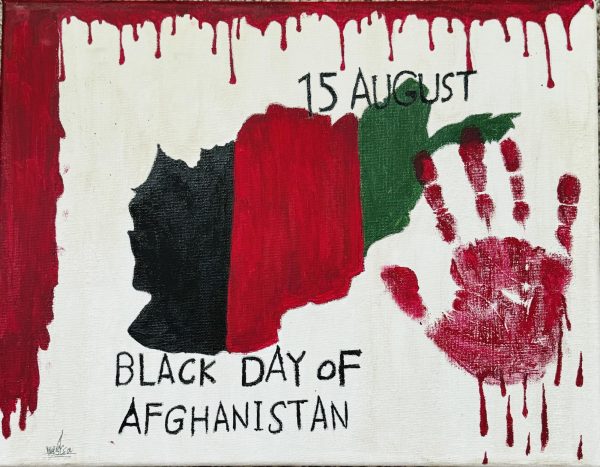
Today, the differences in human rights between Afghanistan and the U.S. are especially stark, with Vice President Kamala Harris campaigning to become the nation’s first female president. Not only would Harris’ presidency be a first for the country and a testament to female opportunity in America, it would also, according to her campaign message, potentially open the door to future female rights by attempting to reinstate national abortion rights.
Both Burhani and Kawoon agree that a female president would be a beneficial step forward for America, “so other people and men,” said Burhani, “can see the power [of] women.” However, their main concern is with their home country, and specifically the future president’s policies towards it.
“My wish is if she became president … she would get more focused on Afghanistan. Whichever side supports Afghanistan has our support,” said Kawoon.
Even though the human rights situation is worsening under Taliban rule in Afghanistan, the opportunities of education here in the U.S. inspire Afghan students to continue fighting for their rights and their country. Burhani, even though she is currently prohibited by Taliban law in Afghanistan, hopes one day to get politically involved.
“I have a dream that one day I [can] become a diplomat and represent my country in the U.N,” she said.
Sana Kawoon’s sister, Suraya, said that the support and access to education in the U.S. has allowed her to “[become] more confident than I was.” Kawoon herself has taken a slightly broader approach.
“Afghanistan [has] given a lot to us, and if you ask every Afghan, boy or girl, [they] want to grow up and be something and then give back to Afghanistan,” Kawoon said. “That’s the big dream of every Afghan.”




